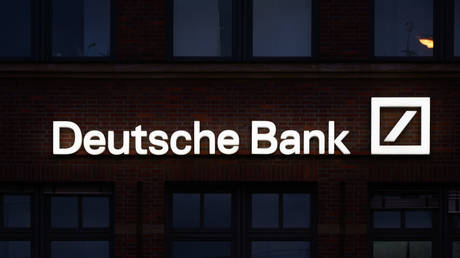Russian stock warning from Deutsche Bank - Reuters
Germany’s largest lender has raised concerns that some of its clients’ money invested in Russian companies is no longer accessible

The large bank is no longer able to guarantee complete access for its customers to equities in the sanctioned nation.
In a note to its clients that was seen by Reuters, Deutsche Bank of Germany said that it can no longer guarantee full access to clients' assets in Russian stocks.
In its circular dated June 9, the banking giant identified a shortfall in the shares backing its depositary receipts (DRs) allocated before the launch of Moscow’s military operation in Ukraine, which have been held in Russia by a different depositary bank.
According to the German lender, the shortfall is attributed to Moscow’s decision to allow investors to convert some DRs into local stock. The share conversion reportedly occurred without Deutsche Bank’s “involvement or oversight” and the lender could not reconcile the company shares with the DRs.
Shares affected include those in national airline Aeroflot, construction firm LSR Group, mining and steel firm Mechel and Novolipetsk Steel.
“Literally everything in Russia has been vulnerable, whether its these DRs, equities, real estate or any other form of financial asset,” Irina Tsukerman, president at geopolitical risk consultancy Scarab Rising told Reuters, adding that the news should come as no surprise.
The conversion of shares had been carried out in accordance with Russian legislation and it was not the accounting institution responsible for implementing this mechanism, Russia’s National Settlement Depository said, as quoted by the agency.
Deutsche Bank is now allowing investors to swap DRs for shares as part of its plans to exit all Russia business, but determined that clients could be in a better position if they could convert their DRs at least partially, an unnamed source told the media.
Deutsche cautioned that the net proceeds from sales of shares it was able to return to investors would likely be “substantially lower” than the current market price.
The lender added that it understood Russia’s Government Commission for Control over Foreign Investments required that such shares be sold “at a discount of at least 50% from their appraised market value.”
The Ukraine-related sanctions imposed on Russia by the West along with countermeasures taken by the Kremlin have left assets held by citizens and companies, both in Russia and abroad, stranded.






















